Related Research Articles

The Royal College of Nursing (RCN) is a registered trade union and professional body in the United Kingdom for those in the profession of nursing. It was founded in 1916 as the College of Nursing, receiving its royal charter in 1928. Queen Elizabeth II was the patron until her death in 2022, King Charles III continued the royal connection and became patron in 2024. The majority of members are registered nurses; however student nurses and healthcare assistants are also members. There is also a category of membership, at a reduced cost, for retired people.
Nurse education consists of the theoretical and practical training provided to nurses with the purpose to prepare them for their duties as nursing care professionals. This education is provided to student nurses by experienced nurses and other medical professionals who have qualified or experienced for educational tasks, traditionally in a type of professional school known as a nursing school or college of nursing. Most countries offer nurse education courses that can be relevant to general nursing or to specialized areas including mental health nursing, pediatric nursing, and post-operative nursing. Nurse education also provides post-qualification courses in specialist subjects within nursing.
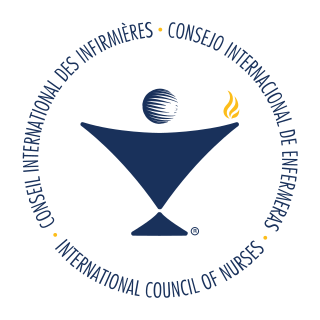
The International Council of Nurses (ICN) is a federation of more than 130 national nurses associations. It was founded in 1899 and was the first international organization for health care professionals. It is headquartered in Geneva, Switzerland.

Ethel Gordon Fenwick was a British nurse who played a major role in the History of Nursing in the United Kingdom. She campaigned to procure a nationally recognised certificate for nursing, to safeguard the title "Nurse", and lobbied Parliament to pass a law to control nursing and limit it to "registered" nurses only.
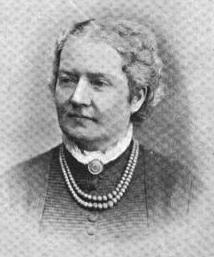
Louisa Stevenson was a Scottish campaigner for women's university education, women's suffrage and effective, well-organised nursing. She was the co-founder of Edinburgh’s Queen Margaret University.

Dame Sarah Ann Swift, GBE, RRC was an English nurse and founder in 1916 of the College of Nursing Ltd. which became the Royal College of Nursing. The College of Nursing created the first registers of nurses, a blueprint for the introduction of Nurse registration in the United Kingdom.

Dame Alicia Frances Jane Lloyd Still, was a British nurse, teacher, hospital matron and leader of her profession. She was one of the leaders in the campaign for state registration of nurses. Following the Nurses Registration Act 1919, she was a member of the General Nursing Council (1920-1937). As chairwoman of the General Nursing Council's first Education and Examinations Committee she helped establish the first national examination standards for the registration of nurses.
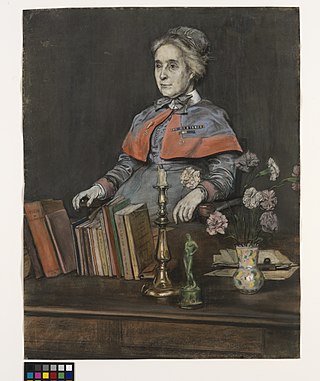
Dame Sidney Jane Browne, was the first appointed Matron-in-Chief of the newly formed Queen Alexandra's Imperial Military Nursing Service (QAIMNS). After she retired from the QAIMNS she was appointed as Matron-in-Chief of the Territorial Force Nursing Service. Browne was appointed a Dame Grand Cross of the Order of the British Empire in 1919 and, in 1922, she became the first President of the Royal College of Nursing, a post she held until 1925.
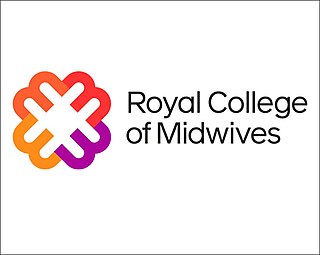
The Royal College of Midwives (RCM) is a British midwives organisation founded in 1881 by Louisa Hubbard and Zepherina Veitch. It has existed under its present name since 1947, and is the United Kingdom's only trade union or professional organisation for midwives and those that support them. Gill Walton is the current Chief Executive.

Isla Stewart was an English hospital matron of St Bartholomew's Hospital in London and a founding member of the Royal British Nurses' Association.
The history of nursing in the United Kingdom relates to the development of the profession since the 1850s. The history of nursing itself dates back to ancient history, when the sick were cared for in temples and places of worship. In the early Christian era, nursing in the United Kingdom was undertaken by certain women in the Christian Church, their services being extended to patients in their homes. These women had no real training by today's standards, but experience taught them valuable skills, especially in the use of herbs and folk drugs, and some gained fame as the physicians of their era. Remnants of the religious nature of nurses remains in Britain today, especially with the retention of the job title "Sister" for a senior female nurse.
Annie Warren Gill & Bar was a British nurse who served as president of the College of Nursing in 1927.
The British Journal of Nursing is a medical journal covering nursing. In addition to academic material on nursing and hospitals, the journal provides information on people and events as well as photographs and advertisements. There have been two versions of the journal, one historic and one modern.

Margaret Rachel Huxley (1854–1940) was an English nurse who introduced structured, scientific nursing training in Ireland. Her initiatives led to the establishment of the first nursing school in Dublin. She was involved in numerous organisations promoting professionalism in nursing and campaigning for nurse registration throughout the British Isles.
Susan Villiers (1863–1945) was an English nurse who specialised in caring for patients with infectious diseases in fever hospitals, also known as isolation hospitals. She was a leading figure in the drive for better nursing education and a better-organised nursing profession, especially for fever nurses. As well as being matron of various fever hospitals, she was on the council of the Fever Nurses Association from its beginning in 1908, and she played important roles in various other organisations working towards registration of qualified nurses, better training and other improvements for the profession.
The Fever Nurses Association was established in London in 1908.
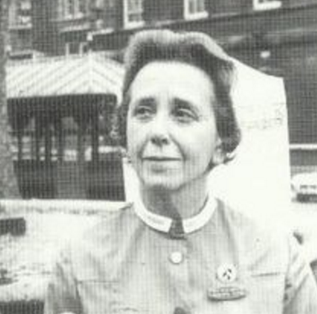
Winifred Emily Hector FRCN was an English nurse and textbook author. She played a significant part in introducing modern curriculum and teaching methods to British nursing education.
The Royal British Nurses' Association was founded in December 1887 by Ethel Bedford-Fenwick, with leading matrons from voluntary, local authority and military hospitals including; Isla Stewart of St Bartholomew's Hospital, Godiva Thorold of the Middlesex Hospital, Miss Hogg of Haslar Hospital and Anne Gibson of Brownlow Hill Infirmary, Liverpool
Rosalie Dreyer was a Swiss-born naturalised British nurse and administrator. Immigrating to England at the age of eighteen, she trained as a nurse in London and worked her way through the ranks to become matron, principal matron and chief matron-in-charge of the Nursing Service of the London County Council. Dreyer was a pioneer in the development of Britain's public-funded nursing service.

Annie Sophia Jane McIntosh CBE, RRC was a British nurse and nursing leader. She was a Matron of St Bartholomew's Hospital, London (1910–1927), promoted the fledgling College of Nursing Ltd, and served on several wartime committees.
References
- ↑ David Doughan, Peter Gordon, Dictionary of British Women's Organisations, 1825 – 1960, Routledge 2014
- 1 2 3 4 "British Journal of Nursing April 1947 p41". Archived from the original on 19 September 2016. Retrieved 6 June 2016.
- 1 2 Margaret Currie, Fever Hospitals and Fever Nurses, Routledge 2013, page 176
- 1 2 Susan McGann, ‘Fenwick , Ethel Gordon (1857–1947)’, Oxford Dictionary of National Biography, Oxford University Press, 2004; online edn, Jan 2010
- ↑ Kings College archives: Royal British Nurses Association, British College of Nurses